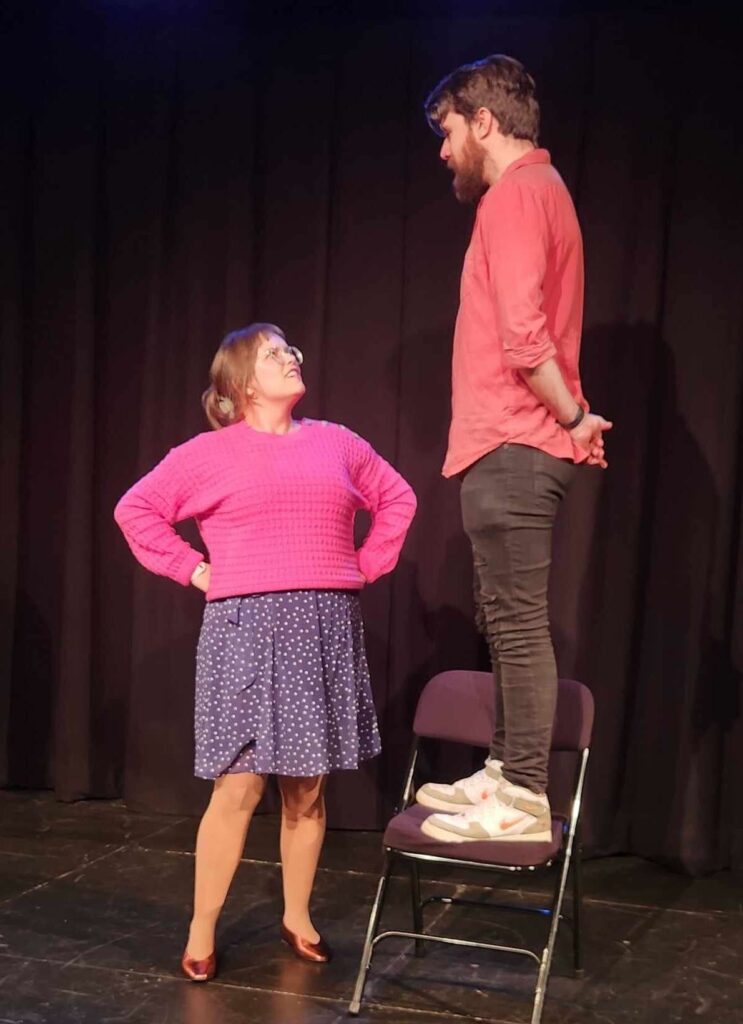More people are feeling the weight of collective trauma and winter blues. Here’s how to cope
The winter blues are real, and feel more present these days, an APA study shows. Here’s what psychologists suggest on how to balance our feelings.
Listen 2:20
(Courtesy of Bigstock)
From Philly and the Pa. suburbs to South Jersey and Delaware, what would you like WHYY News to cover? Let us know!
We’ve all heard the phrase “winter blues.” Turns out, it’s a real thing.
The winter and holiday seasons stir up conflicting feelings for many, and a new survey by the American Psychological Association (APA) shows why. Nearly 9 in 10 people are stressed by not having enough money, family conflicts, and missing loved ones. But those are not the only concerns.
“Global conflict, racism and racial injustice, inflation, and climate-related disasters are all weighing on the collective consciousness of Americans,” states a recent APA blog.
Over time, this stress and emotional distress has an effect on our bodies, too, experts say. In the last several years, researchers noted a rise in chronic illnesses, such as high cholesterol or arthritis, and increases in mental health needs. The two are connected.
Notably, most people — around 67% of adults — tend to downplay stress, saying that their problems are “not bad enough,” according to the APA.
However, chronic illnesses and new diagnoses have increased, particularly among 35- to 44-year-olds. Between 2019 and 2023, the rates of chronic illnesses rose by 10 percentage points. Rates of new diagnoses increased by 14 percentage points between the same period.
Philadelphia resident Cara Hammer remembers feeling overwhelmed with life’s demands a few years ago.
Hammer, a self-described goth kid, felt ostracized growing up in the Midwest. Unsuccessful therapy sessions often undermined her feelings of loneliness. Plus dark, cold winters in the city are difficult, she said. Dirty snow on the streets is not as pretty as a snow blanketing a field of grass.
Then, as a young adult she lost hearing in one ear. Life kept hitting, and hard, she said. She worked in the service industry and did not have health insurance. It was difficult to find a silver lining. Hammer was determined to find help despite her limited means.

She found a new therapist and received a new diagnosis for complex post-traumatic stress disorder. Hammer felt an overwhelming sense of relief.
“It still hurts. It’s still terrible,” she added. “But it’s so empowering to be there in that black hole and understand that your real life is still waiting there for you when you come out of it.”

She is among the 35- to 44-year-olds who received a new diagnosis in the last three years. Although this helped her cut through the fog, building community is what got her through. After joining and founding an improv group, she felt more confident and said doing random things in front of strangers improved her sense of belonging.
What is happening right now?
The APA’s survey also showed increased rates of anxiety and depression linked to compounding stressors such as racial conflict.
That is creating what medical health experts call “collective trauma.”
Collective trauma is caused by a combination of factors, experts explain. Stressors range, but some include the effects of the COVID-19 pandemic, political conflict, the upcoming election cycle, general holiday anxieties, and, more recently, the persistent conflicts in Gaza and the West Bank.
Licensed psychologist Dr. Lynn Bufka works as the APA’s associate chief of practice transformation and quality, which looks at policies or programs and their impacts on access to quality mental health care.
Bufka said their survey data lifts the veil on the intersection of factors that might be affecting communities.
They found that the distress of ongoing wars combined with public health crises have caused a domino effect, particularly for those without access or the means for care. High tension moments like these cause distress.
Her concern is the lack of what is available.
“It’s a lot for people to figure out and understand,” Bufka said. “We have a real bottleneck for what … we need to do. Accessing care has been very challenging.”
She pointed out that in addition to people who may be feeling overburdened by holiday stressors, political tensions, some are experiencing isolation during the season because of cultural differences. To reduce the chances of dinner table conversations going awry, she said to plan in advance what topics are off the table.
Setting expectations and the mood ahead of time helps keep gatherings more light-hearted.
Quick tips on navigating collective trauma and winter blues:
- Focus on the small wins — such as preserving energy at home, hanging out with a good friend, setting and keeping boundaries that keep you happy, and distracting oneself with fun movies
- Acknowledge feeling off. As cliche as it sounds, be OK with not being OK
- Take the “I-can-do-it-all” mask off at work and, if you’re a manager, be honest with your team, commend them for showing up, and support with kindness. This can reduce feelings of loneliness, while nurturing camaraderie and empathy
- Build connections with people around you to uplift your mood and, if you have the mental energy, volunteer to support a community in need
- Redirect investment during the holidays to help manage expectations. Spending quality time or having a new experience can be a gift
On the other hand, some people who do not celebrate certain holidays, such as Christmas or Hanukkah, can experience higher rates of loneliness. To combat that, Dr. Bufka advised more folks to find ways to include people for dinners or social outings.
“Connection with others really buoys our overall well-being. Sometimes we have to go places to find those connections,” she added.
Building community is also a way to lower stress levels. It can be a way of giving back.
“If you’re doing OK, think about how you can support your neighbors or support others in your community,” Dr. Bafka said.
Dr. Dana Bodennheimer, founder of Walnut Psychotherapy Center in Philadelphia, said the need for support now is great. She agreed that, like the APA study shows, finding services in the city has been a constant struggle.
The most recent health rankings placed Philadelphia as the least healthy county in Pennsylvania. Last December, Temple University found that nearly half of Philadelphians reported ““experiencing poor mental health” at least 12 times over the course of a year.”
Access to health care in Philly is similarly tough.
In the last year, The Walnut Pschotherapy’s group 23 therapists have served around 500 people, with a focus on helping LGBTQ folks and people of color.
Across the board, Dr. Bodennheimer sees people who are all trying to readjust to life after COVID lockdowns. Experiences like not having energy to leave the house or manage social outings are a result of the isolation, which make it difficult for people to gauge their capacity.
“The need is really, really high. It’s largely because mental health has really deteriorated, baselines are lower than they’ve been in a really long time,” she said, adding that people’s needs shifted dramatically after Oct. 7. “I think people’s … insides are just kind of… being really messed with.”
Traditional coping skills that therapists and counselors once advised may not work these days, she said. Mindfulness or journaling, for instance, can be overwhelming for people.
“Mindfulness basically means paying exquisite attention to the world around you and taking it [in],” she explained. “[With] meditation you’re saying try to sit alone calmly with your thoughts, but their thoughts have become so scary and the images they’re seeing on a daily basis are so intrusive that you don’t want to leave somebody alone in that.”
Bodennheimer suggests acknowledgement that it is OK to not be OK, and to give space for feeling off.
That is especially true during the winter season, which can place even more pressure to strive for the perfect holiday season and into the new year, check off pending family traditions, or be among family members who feel unsafe to be around. Boundaries are OK, she said, and protecting one’s space is OK, too.
Her advice is to think about the small wins.
“I would wish for people to take themselves out of the running for the perfect holiday,” Bodennheimer said. “If they get some time that’s super cozy with an extra blanket, I would be like, ‘That’s your holiday win.’”
If you or someone you know is in crisis, call or text the National Suicide Prevention Lifeline at 988. The hotline is staffed 24/7 by trained counselors who can offer free, confidential support. Spanish speakers can call 1-888-628-9454. People who are deaf or hard of hearing can call 1-800-799-4889.

Saturdays just got more interesting.
WHYY is your source for fact-based, in-depth journalism and information. As a nonprofit organization, we rely on financial support from readers like you. Please give today.






